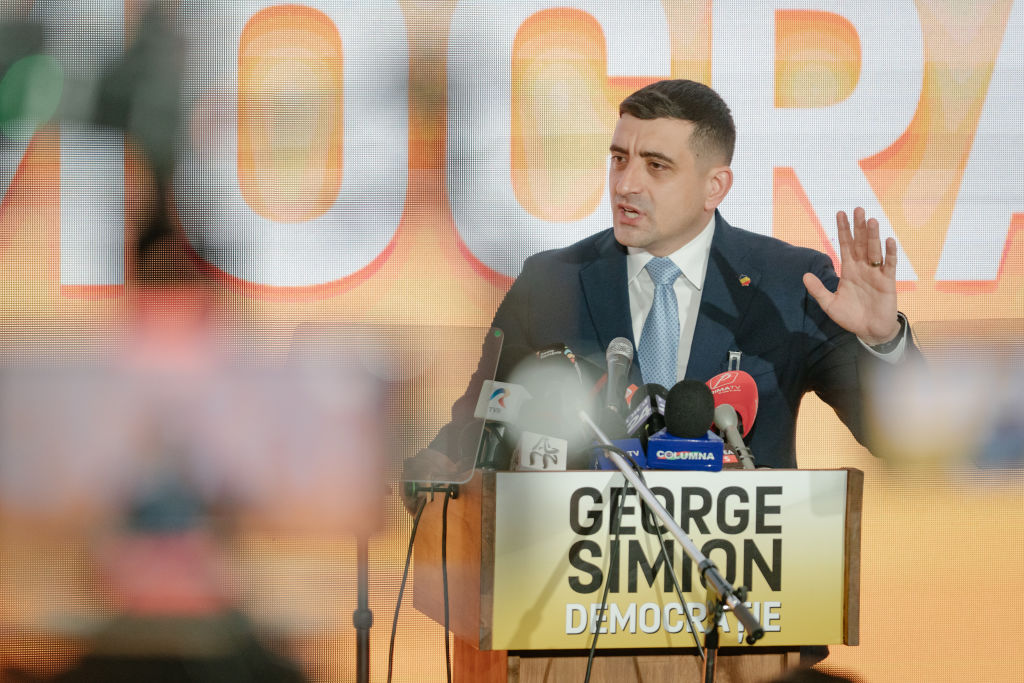With a trillion dollar budget now finally in sight for the United States military, with Europe, too, formally committing to hundreds of billions of new defence spending as NATO ups its (fake) target to 5 per cent, with wars and bombing in Ukraine and the Middle East and with China building up its nuclear and conventional arsenals in preparation for a Taiwan invasion, our foreseeable future only seems to offer more military strain and strife in foreign lands – not less.
And yet, the increasing European efforts at rearmament, revived at scale in recent years in response to hysterical warnings about the “Russian threat”, are more likely the last hurrah of an inept, war-obsessed, policy elite living out its last period of historical relevance, than the start of a real new defence renaissance.
No doubt, the intent is genuine. The failing defence intelligentsia – “experts”, academics, policy-makers – and their political masters, who have never got any of the big strategic decisions of the past 30-plus years right, all these people really do fantasise about a rebuilt, massive, UK and European defence that can “put Russia in its place” and even flex against China. The more extremely intellectually-challenged among them are even developing visions of a re-empowered Britain and EU playing “strategic roles” in the world going forward.
This is nothing but the final delusion of a defence and foreign policy establishment running on the fumes of an 80 year-old Western Alliance geostrategic engine that has almost completely broken down. The entire global strategy and military policy of wider Europe (UK included) is based on expired assumptions – about NATO Article 5 for instance, or of the continued social peace within our own polities – that no one is willing to question seriously.
One indication of just how artificial this exercise in continent-wide strategic mobilisation is the fact that it requires such vast amounts of scaremongering and propaganda on the part of governments and their court “defence intellectuals” pushing increasingly hysterical narratives on Ukraine and on Putin’s supposed plans to invade the West, in order to convince the public that the danger is real.
After all, somehow the taxpayers must be made to accept willingly more debt and taxes to pay for increased defence spending – and to not ask any of the deeper questions about exactly why we are in this situation in the first place, and whether the “threat” can be removed through other means such as diplomatic negotiations.
But therein lies the problem: the voters are beginning to question the received official narratives. The entire edifice of West European defence policy-making, built on the basic Cold War premise of “the free world” (of rule-of-law liberal democracies) versus the “evil” dictatorships (Soviet communism back in the day, Putin now), and on a range of other old “truths” has begun to crumble as almost all of these premises have now been hollowed out.
To begin with, a heavy, front-footed military posture is no longer affordable even for regional defence on Europe’s borderlands, let alone for any kind of out-of-area or global power-projection of the kind that Britain tries to role-play in the Indo-Pacific. As previously explained in these pages, even a basic calculation reveals that the Europeans would have to be able to put at least about 150 brigades in the field in a full-scale contingency against Russia.
The starting point would be the current total of c.113 brigades across Europe if one counts every declared unit in every NATO country; the majority of these are not battle-ready and many exist only on paper, so the true size of Europe’s land fighting forces able to take on the battle-hardened Russian units is closer to barely a couple of dozen brigades at best.
So, even at a first glance, Europe would need to stand up at least about 100 fully-equipped brigades within the next four years (before Putin invades, as Germany’s top general claims) in order to match the force that Russia could send westwards assuming it had fought Ukraine to a standstill and had to leave troops behind to keep the Ukrainians in check.
Obviously, there is not the money, the defence industrial base, nor the human resource in Europe to build up a 100-brigade force – not in four years, and not in ten. Big as they are, the Europeans’ announced defence spending ambitions (3.5 per cent by 2035) are pitiful compared to the actual task, if the task (of matching Russia) were to be taken seriously. But it is not – so, again, at some point the public will realise that this painfully expensive defence expansion does not actually solve the defence problem at all, but in fact will make it worse by increasing Russian paranoia and possibly provoking an over-reaction from Moscow.
Secondly, the grand strategy that is supposed to support Europe’s defence expansion is now obsolete. Our current defence policy and strategic thinking, which pervades the legions of defence planners, analysts and non-government experts and academics in the field, as well as the Western political elites, is inherited from an era of US primacy and Western-led world order that is now simply gone.
This is important, because under that previous order it was possible to match Russia (rather, the Soviets) militarily to enable effective deterrence, and then engage in a strategic competition that could be won (which it was). Today’s multipolar world order means that matching Russia militarily – even if that were possible, which it isn’t, as shown above – would likely not lead to strategic success long-term because Moscow is backstopped by Beijing – as Wang Yi made explicit the other week. Voters tend to have much more common sense than “experts”, and they can sense, instinctively, that old Cold War-style approaches don’t work the same in a multipolar world.
Added to the loss of economic and strategic margin over our adversaries – with the transition to a multipolar order – is the fact that we have also generally lost our technology edge. Long gone are the days of the First Gulf War when the display of unparalleled, computer-powered, satellite-guided US military tech stunned the whole world. Our adversaries have caught up and in some areas – e.g. arguably in hypersonics – they might have pulled ahead even of the US. The span of tech areas of continued US advantage – aspects of aerospace etc – is shrinking.
In these conditions, it will become increasingly hard to convince the public that an expansive foreign and defence policy predicated on the same basic imperatives as in the past – defending “global interests”, “allies” and “freedom” the world over – is still viable, rather than becoming reckless. As areas of traditional Western advantage are lost, such as economic-industrial power or military technology, the coordinates of traditional Western strategy should change fundamentally.
Critically, we have also effectively lost the moral edge. Democracy is imploding, certainly in Europe – see the annulment of “undesirable” presidential election results in Romania last December . But now it is the UK, in particular, which is providing daily evidence of a British state gone rogue and a constitutional settlement that has become untenable and delegitimised beyond repair. What used to be the European half of the “free world” is now a place of repression against free speech, of woke cultural abominations, of undemocratic mass importation of fighting-age male migrants from the third world, of vast corruption and waste, of anti-national and anti-Christian policies, and of generalised government incompetence and failure.
Most European governments are now overtly operating outside democratic principles, protected by the power of the courts and of the deep state in each major country, and conducting increasingly crude and intense disinformation and propaganda campaigns against their own populations. The fact is that by almost every metric that we used to measure and condemn our geopolitical adversaries like China and Russia – e.g. “democratic values”, “rule of law”, etc – it is we who are failing the test now in the most shameful ways.
So, what exactly are the arguments left to us by our anti-national, deceitful, almost treasonous political elites, in opposing the “authoritarian regimes” of Russia or China on so-called “moral” grounds? Given the list of (often monstrous) crimes against democracy that keep piling up across Europe, both by elected and, especially, by unelected officials, it is increasingly hard to present a clear-cut case to voters of our collective moral superiority, as we used to in days past. And this is even before one delves into the various illegal Western military interventions from the Balkans to the Middle East, since the end of the Cold War.
It is simply a matter of fact that the moral foundations of our traditional conduct and strategy in foreign affairs have eroded to the point of near irrelevance – perhaps for the first time in the modern age. This must necessarily prompt a radical re-think of UK’s and European nations’ national interests and their entire conceptions of engaging with the world.
When all these factors are added together, the rationale for our current defence guidelines and our foreign policy alignments and choices takes on a measure of uncertainty. In this context, the moment might draw near when a nationalist politician with a flair for stirring popular opinion might start questioning the assumptions we’ve inherited from the previous age of Western primacy.
Such a “populist” leader might ask – on behalf of the voters – what exactly is the danger to Europe and especially to a geographically secure country like Britain, from Russia or from China? Why exactly must our sovereign Western nations have an antagonistic and hostile relationship with Moscow and Beijing? What vital national interests are at stake in this for the individual countries concerned (rather than on behalf of some other country)? And is the current “war fever”, and associated vast defence costs, justified and proportional to those interests? Can they not be attained via a political settlement instead of more military build-ups?
The answers might be surprisingly difficult to articulate in persuasive way to voters, once the hard cold facts of strategy are examined and logic of national self-interest is applied. Much of what sustains the existing consensus on foreign policy is based on outdated assumptions, some of which have crossed into myth.
Once some veils of illusion are pierced, there is no going back. And this kind of scrutiny is coming, together with the onward march of populist, reformist politics. More likely than not, then, isolationism will be the wave of the future in Western foreign policy.






Europe’s make-believe defence ‘pledges’